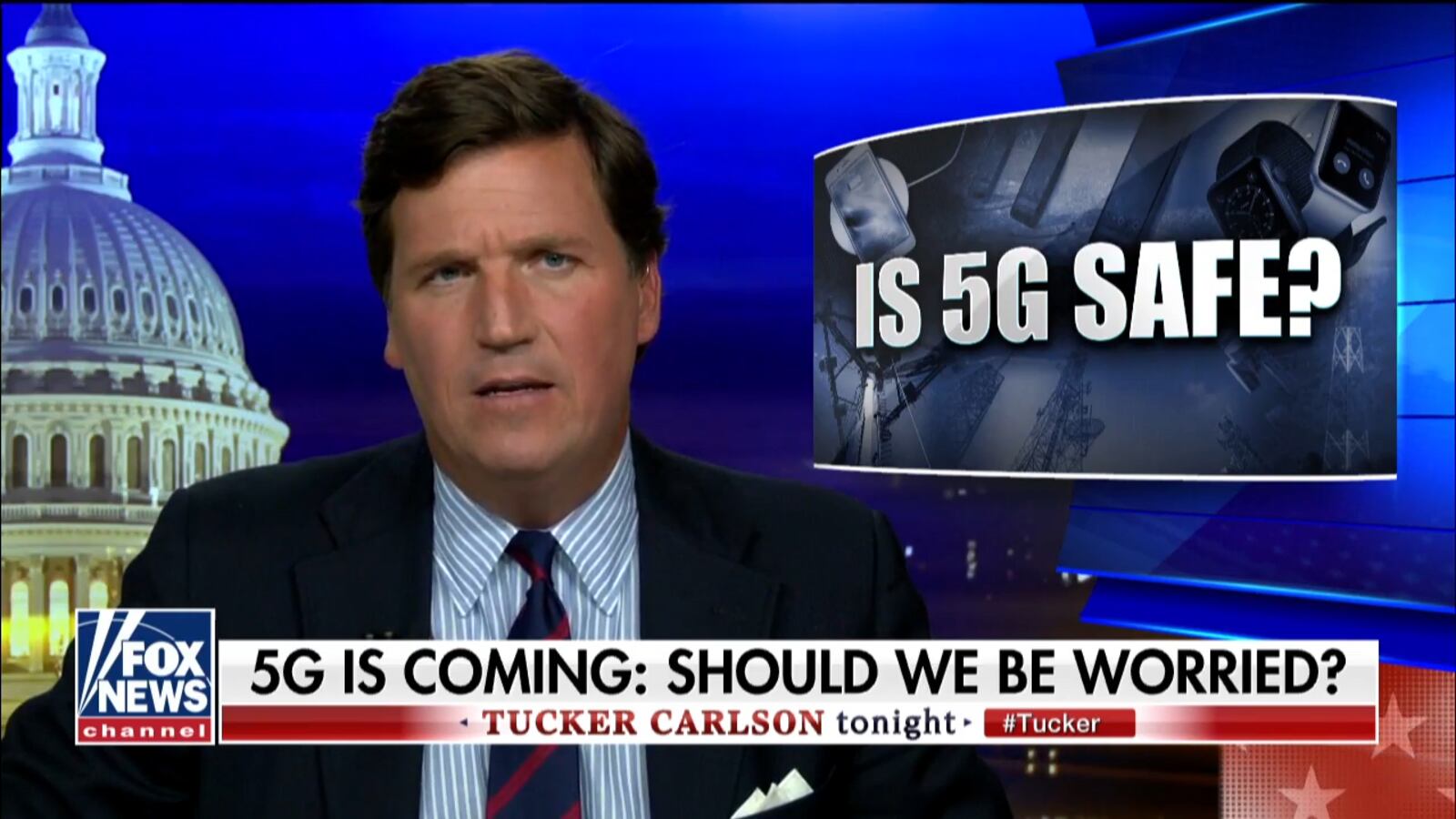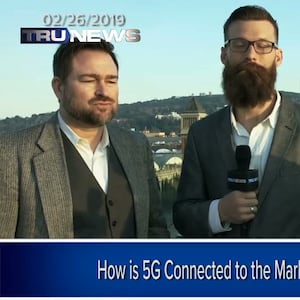Fox News host Tucker Carlson devoted part of his show Tuesday to scaring Americans about possible health risks in 5G mobile technology, picking up a Russian disinformation thread pushed heavily on the RT network.
“Are 5G networks safe?” Carlson asked. “Physically, medically safe? There’s some debate about that.”
There’s really not. But, as The New York Times reported at length less than two weeks ago, the Kremlin-controlled RT America network has been working feverishly to convince U.S. consumers that a “5G Apocalypse” is coming, claiming falsely that the higher frequency radio signals used in 5G cause everything from cancer to nosebleeds to autism.
If Vladimir Putin can convince enough Americans that 5G technology will kill them, it might put a drag on U.S. adoption, research, and investment, and make a little space for Russia in a high-stakes geoeconomic technology race where China and the U.S. have the greatest advantage.
Some RT video titles—including “5G Wireless: A Dangerous ‘Experiment on Humanity’”; “How to Survive Dangers of 5G”; “Totally Insane’: Telecom Industry Ignores 5G Dangers” —have parroted that overheated scaremongering.
By contrast, Carlson’s “Are 5G networks a danger to our health and safety?” was relatively tame. Where RT is adept at booking fringe “experts” and outliers to appear on its shows, Fox News went with in-house medical contributor Marc Siegel, who actually walked Carlson through the roots of the 5G Apocalypse story.
“Russian TV is trying to scare us,” Siegel told Carlson. “So I don’t want to come out and say I think there are definite health risks. And I want to tell you, medically this is a huge home run.”
Siegel then gushed about what the increased speed and bandwidth of 5G could mean in the operating room. “We’re probably going to be able to operate robotically. That’s right. Robotically. From other places in the world!”
In the end, the closest Siegel could come to delivering on Carlson’s ominous setup was to repeatedly point out that no “long-term studies” of 5G’s health effects have been completed. That’s not surprising, given that the 5G standard is less than a year old. Carlson, though, expressed astonishment. “Before those studies are available, we’re building the infrastructure and doing it anyway?!”
The last long-term cellphone health study—of 2G and 3G technologies —took 10 years to complete, and when the results were released in 2018 both technologies were obsolete.







